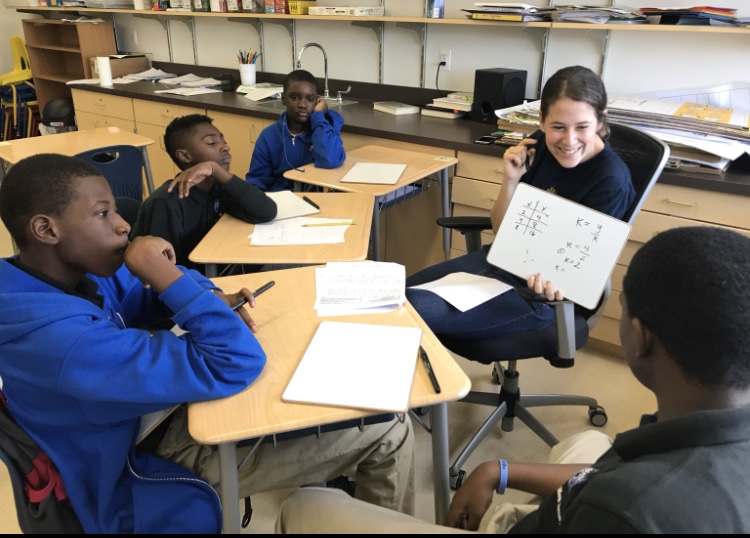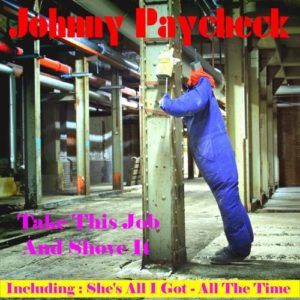Last week I had the pleasure of interviewing Nicolina Abruzzese, Assistant Principal of Special Education at KIPP Bold Academy, a charter middle school in Newark that is part of the KIPP New Jersey charter school network. This is Nicolina’s fourth year with KIPPNJ and tenth year in education. She has worked as a Special Education coordinator, department chair and coach of special education teachers and paraprofessionals, co-chair of the Child Study Team, and as a special education teacher in her time at KIPPNJ covering grades K-8.
As many of us who follow education know, summertime is not just fun and games for low-income students but the advent of what is often called the “summer slide.” KIPP Newark addresses this regression of skills acquired during the previous school year through a program called Summer Jump, which serves students with disabilities as well as general education students who benefit from summer enrichment.
Here’s what’s up at KIPP!
NJLB: Nicolina, there’s a myth out there that public charter schools don’t serve children with moderate to severe disabilities. Can you comment on that?
NA: There’s just tons of misunderstandings about this! Bold, which serves 500 students grades 5-8, has 89 students with special needs. We’re big believers in inclusive classrooms — when we started, we only had inclusion classes with pull-outs for services — but over time we realized that some of our students needed higher levels of support. One mold didn’t fit every kid. And so we created two self-contained classrooms, particularly for students on the more severe end of the autism spectrum and those with more severe cognitive disabilities.
NJLB: How is KIPP’s special education leadership program organized?
NA: KIPPNJ has a Director of Special Education and then every one of our schools in Newark and Camden has an Assistant Principal of Special Education. Staff members in this role go through a rigorous selection process. We sit on school leadership teams, we’re coached directly by the principal, and have a voice in the entire school culture to ensure our special education population is being recognized in whole-school decisions. We also are in charge of all special education programming, individually coach all our special education teachers and paraprofessionals, and we co-chair the Child Study Teams. We’re all so passionate about our work, although much of it goes unrecognized. I don’t need the recognition myself, but my kids and teacher do!
NJLB: Can you tell me about Summer Jump?
NA: Of course! I’m so proud of this program! Summer slide is a research-based phenomenon that most affects low-income children in communities that KIPP serves. Many of our kids have little access to camps, libraries, books, computers, and other resources. And so we started a summer program that is two-fold. We serve students with disabilities who are entitled to Extended Year Programs and we reserve 60 slots for general education students who would benefit from summer school. All students get reading, math, a physical education block, and guided reading.
And of course we provide all related services itemized in Individualized Education Plans (IEP’s), like speech, occupational therapy, counseling, etc.
NJLB: Is it difficult to combine special education students and general ed students, especially those who spend the year in self-contained classrooms?
NA: The inclusivity piece is so important. We work really hard creating an integrated, inclusive environment in Summer Jump. Our more severely-affected students who are in self-contained classrooms during the year get the benefit of social skills reinforcement. We try hard to instill a sense of compassion and empathy in all our students, so not only do our special education students get the benefit of being around their same-aged peers, but our general education population loves interacting with and having opportunities to support our sped students. And to be honest, many of our special education students just grow and learn alongside all their peers, because a culture of inclusivity is what is more important!
NJLB: How long is Summer Jump?
The program runs for four weeks, Monday through Thursday, from 8 am to 1:30. We give our students breakfast and lunch. Also, we hire our staff internally: all our teachers and paras work at Bold during the year so they know all the students and their individualized needs.
NJLB: Tell me more about the teachers who work with these students.
NA: We’ve been very intentional about who our teachers are, not just during the summer but throughout the year as well. Most have been with Bold since our school opened four years ago and two are founding teachers. Two didn’t start out as a special education teachers but went back to school in order to obtain their special education license because they felt so passionate about working with our students. Another started with us as a paraprofessional aide; she loved the kids so much that she went to teacher college.
When we’re looking to hire special ed teachers or move general ed teachers into special education classes, the first thing we look for is passion and a growth mindset. We need teachers who are ready to do anything to serve our kids, who will do whatever it takes so our kids can learn. My teachers do this every single day. They are truly a group of the most gifted, hard-working and passionate people I’ve had the pleasure of working with. They give up their prep time to spend time with kids or form special groups or club, to form relationships (which they value over everything!).
NJLB: Has Bold always had a Summer Jump program?
NA: This is the first year for Bold but not the first year for KIPPNJ. RISE has been doing summer programs for a while with our flagship school, TEAM. When the need for these services became clear at Bold, we partnered with TEAM. Now we’ve centralized the location so that all the TEAM students who need Summer Jump join us at Bold.
NJLB: How will you measure if the program is effective?
NA: We have different ways of measuring success, especially with our special education students. Success can look really different from child to child. Sometimes success for me is if kids are able to self-regulate more or make better eye contact. Of course we do assessments of their reading levels, to see if they maintained the progress they made the previous year and averted the summer slide. We spend a lot of time looking at their IEP’s.
NJLB
: Can you talk more generally about how KIPPNJ creates high-quality special education programming?
NA: Oh, I could talk all day about our programming, the miles we’ve come. At first we had all inclusion classes. Over time, we realized this didn’t fit the mold for every kid and so we created different levels of programming, including self-contained classes, for students who need a higher level or a different level of support. KIPPNJ has a regional special education team — all of us principals get together twice a month to share best practices and ensure that we’re providing similar experiences in all our schools. It’s so great to have other lifelines: “I’m really struggling with this, so how is it for you?”
Through this regional team approach, we’ve reorganized because we want to get better and better at serving our children and creating the high-quality education and the choices in life that our children in Newark deserve to have.
NJLB: Where is KIPP special education programming heading next?
NA: Our goal this year is to continue to establish a continuum of services so that we ensure that all our kids, special ed or otherwise, are moving forward in every way. We ask, “what grade level is this child?” If he or she is in 5th grade but is reading at a 3d grade level, how can we close that gap? What can we do differently? What are the most important skills as we raise the bar for that child? What is the best scope and sequence for a particular student? Some of our students can’t learn every single skill, so what is most important for their success? Our goal is to answer these questions and maximize each child’s growth.









2 Comments